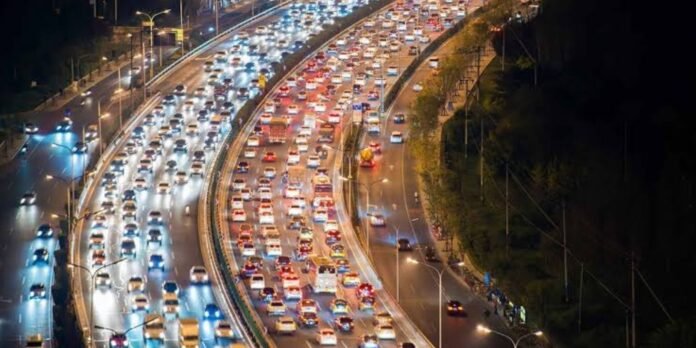
As per a report by TomTom, the Amsterdam-based location technology specialist, Bengaluru and Pune have claimed the sixth and seventh positions, respectively, in the global ranking of the most traffic-congested cities for 2023. In Bengaluru, often referred to as India’s Silicon Valley, the average travel time for 10 kilometers stood at 28 minutes and 10 seconds, while Pune recorded a slightly lower average of 27 minutes and 50 seconds for the same distance.
Additionally, Delhi secured the 44th position with a 21-minute and 40-second average commute time, and Mumbai stood at 54th place with an average travel time of 21 minutes and 20 seconds for the same distance on the TomTom Traffic Index.
Furthermore, Bengaluru earned the title of the second most congested city globally in 2023, trailing behind Dublin, the capital of Ireland. Notably, September 27, 2023, emerged as the most challenging day to travel through Bengaluru, witnessing an average travel time of 32 minutes for 10 kilometers. In Pune, September 8, 2023, was identified as the most congested day, with commuters spending approximately 34 minutes to cover the same distance. Pune secured the sixth position on the worldwide list of congested cities.
The report underscored the considerable time Bengaluru commuters spent behind the wheel. Annually, they dedicated an astonishing 257 hours to congestion, with 132 hours attributed to travel delays. To provide perspective, during this period, a commuter could complete reading approximately 51 books. Additionally, the report disclosed that Bengaluru residents emitted 984 kilograms of carbon dioxide each year, equivalent to the planting of 98 trees over a year to absorb the emissions.
Regarding Pune, individuals invested 256 hours annually in driving, with 128 hours directly linked to congestion. Pune’s carbon emissions surpassed Bengaluru, reaching 1007 kilograms per year. The report suggested planting a minimum of 101 trees to offset this level of carbon emission.
Commuters in Delhi experienced an annual driving time of 191 hours, with 81 hours lost to congestion, a span equivalent to finishing approximately 38 books. Furthermore, these commuters were responsible for 886 kilograms of carbon emissions annually, a footprint that could be offset by planting 89 trees each year.
Commuters in Mumbai dedicated a total of 198 hours to driving annually, with 92 hours impacted by congestion – a timeframe allowing an individual to read around 39 books. Despite this, Mumbai recorded the highest carbon emissions among the cities examined, reaching 1004 kilograms. To counteract this emission level, approximately 100 trees would need to be planted each year.
The TomTom Traffic Index assessed 387 cities spanning 55 countries on six continents, considering average travel time, fuel costs, and CO2 emissions. The data, gathered from over 600 million in-car navigation systems and smartphones, provided a comprehensive overview of global traffic patterns and their environmental impact.

